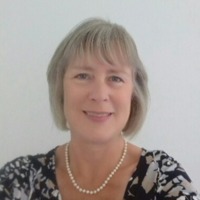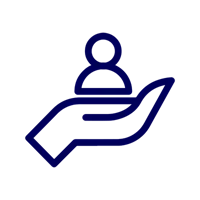
Julie Barrett
European Patent Attorney (Senior Consultant/Owner) at Purposive Step Consulting
Follow your interests, what excites you/floats you boat; find someone who's done what you think you might want to do to mentor you; and go for it!
About Julie...
Who am I?
"You can be any personality type (however measured and defined) to work in intellectual property - don't be defined by these artificial determinations! I am able to adapt my personality - within a range - according to the situation and what is required - and so can you. Rather than personality, it is your willingness to learn and develop yourself; a curiosity about products, processes and their development and marketing; an attention to detail without losing the bigger picture; the desire to support others with their businesses so that these flourish; a determination to study and practice - including being able to take both positive and negative criticism of your work; and an openness to work both as a team and on your own, depending what is required at the time, that are important factors."
What do I do?
"The role of an intellectual property attorney (e.g. patent and/or trade mark attorney) is focused on protecting the ideas, creations and inventions that arise in business - and other organisations such as universities. This is so that the creator/originator of the idea is able to gain the most from their efforts without others coming along, copying their idea and benefitting without having put the work in. This is the main initial focus of the work - applying for patents, and registered designs and trade marks, at Intellectual Property (IP) offices around the world. Once applied for, there is a long period of debate to/from with the examiners in the various IP Offices - we use our legal and (for patents) scientific/technical knowledge on behalf of the originator, to try to get the best possible protection for their ideas. An IP attorney also helps during the stage when the original creator is trying to get others interested in partnering, buying, selling, licensing or otherwise commercialising the idea. Then, if a competitor or copier of the idea comes along, the IP attorney is involved in defending the originator's position - which can involve being part of negotiations or court procedures. As well as the registrable protections (patents, trade marks, designs), IP attorneys also advise on copyright, trade secrets, confidential information etc. We work closely with other types of lawyer, such as barristers and solicitors, and also with people in all aspects of business, commerce, research and product/process development."
How did I get here?
"I started out as a trainee patent attorney in a large pharmaceutical company. After qualifying, I moved to Switzerland to work in another pharma co there. When back in the UK, I had roles in private practice (law and specialist IP attorney firms). I have been both Director of IP in life sciences co and Partner in a law firm. I have also had my own businesses, working as a sole practitioner and chief consultant, engaging a range of IP consultants to help me provide a wide service to clients.Nowadays, I am gradually leaving behind the technical and legal work, and focusing on helping IP-related businesses and careers to get the most out of their interests, skills and potential, and to fulfil their ambitions in the field. I spend much time mentoring young people and also in trying to help the IP professions and businesses be more open and inclusive to people from all walks of life and having all sorts of varied characteristics, so that the IP world more closely reflects the variety we see in our society as a whole. I also enjoy helping potential IP people to develop some of the 'soft' skills necessary to be successful, such as how to give talks and presentations, manage their time (work-life blend/balance), deal with appraisals or promotion opportunities, etc."
The life I live
"To be honest, in the early stages of my training (when I was, say 18-25y), there wasn't a huge amount of spare time - life was so busy with work, study and preparing for the exams. But I did manage to fit in singing in choirs, walking in the countryside, going to the cinema and playing badminton. All these activities tended to be rounded off with having a few drinks in the pub afterwards with my friends! I also enjoyed reading novels (usually at bed time).Later, I had children, so looking after and spending time with them was very important. Now they are grown up and pursuing interesting careers themselves, so I have more time for my interests - and for spending time with my friends.I think the best things I've ever done apart from work and family involved singing - I was very lucky to have the chance to sing solos in some of the capital cities of Europe - in beautiful buildings like old churches and cathedrals (and then of course going for a meal with other performers in some delightful bistros or local's homes afterwards). Such a wonderful contrast to science and law!"
My typical day
"A typical day when I was in my 20s (training and early-qualified) would involve some or all of the following:- replying to an official letter from the US patent office, which wanted to refuse my client's patent application on the basis that the idea wasn't that new - and thinking about technical arguments as to why my clients product or process was different from those already 'out there'- answering the phone or email from a potential client asking how they could stop someone from copying their new design, once they'd marketed it- taking part in a scientific meeting to help decide which area of research to pursue - and doing searches to find other companies' patents in the scientific area of interest, so we knew which areas to avoid and which might be free to develop- talking to the pharmaceutical regulatory department about whether a proposed brand name would be ok from a regulatory point-of-view before applying to register it as a trade mark - meeting with my line manager to exchange views on how I was doing in my work/training - and what needed improvement or development and how to achieve that- writing a report for senior management (e.g. in the commercial team) on the IP status of a proposed product- speaking with my counterparts (other IP attorneys) by phone in other countries (especially the US, EU, Japan, India, China, South Korea, etc) on how best to protect my various clients' interests - attending a seminar (nowadays, this is more likely to be online than in person) to learn more about a particular area of IP law or practice- talking with our formalities/administrative team about the details needed to fill in the right forms for filing a new patent application, internationally- checking the details of an invoice - being either sent out (when in private practice) or received (either private or company practice), to ensure it is correct based on the work carried out- providing to the finance dept. budget estimates of costs of our IP filings for the next quarter"
My qualifications
"A levels in Biology, Chemistry and Pure & Applied Maths at schoolBSc (Comb Hons) in Business Administration & Chemistry at universityvia on-the-job training, and work-based plus home study, then taking examinations (now governed by IPReg), qualified as a Registered Patent Attorney (UK) and European Patent Attorney"



